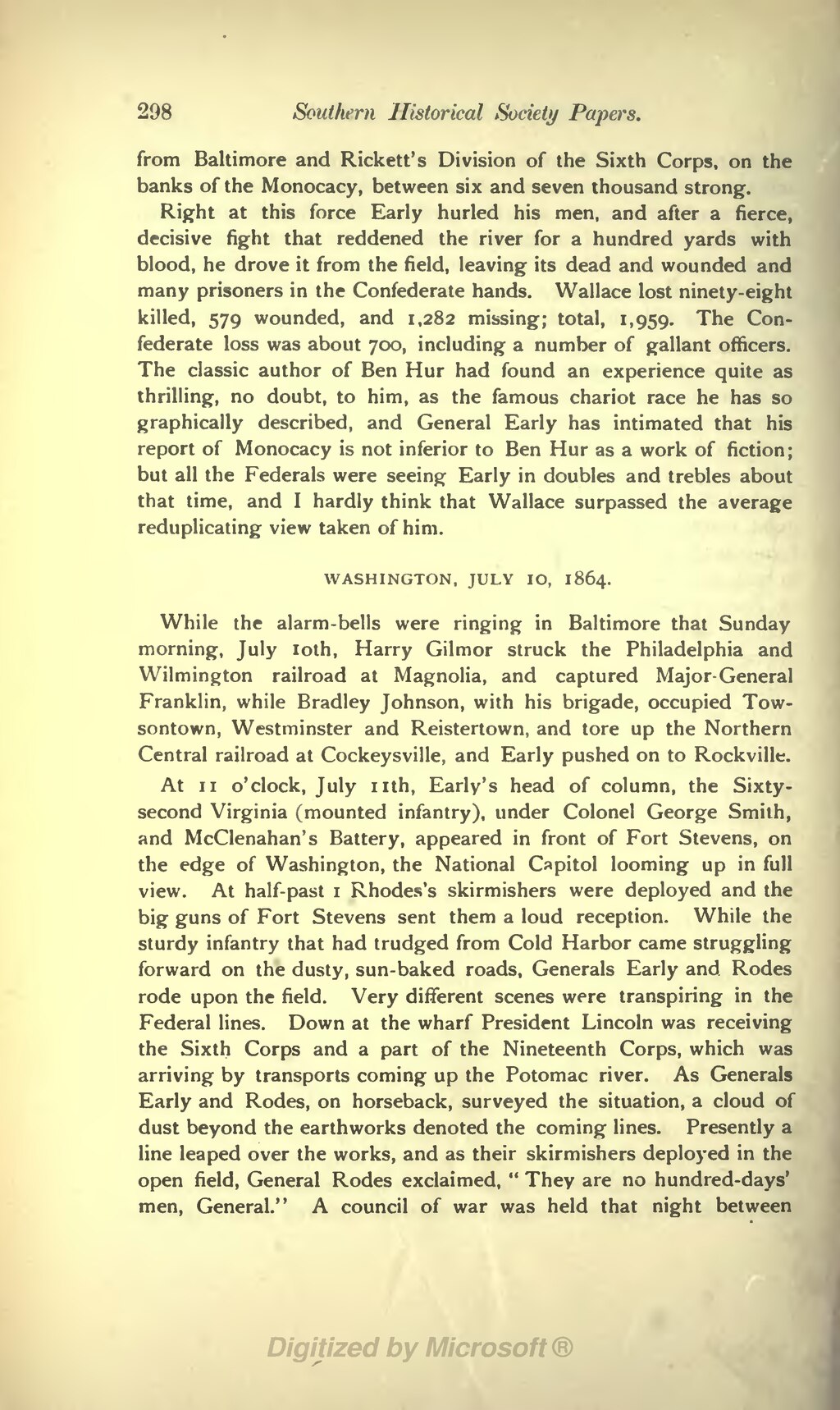298 Southern Historical Society Papers.
from Baltimore and Rickett's Division of the Sixth Corps, on the banks of the Monocacy, between six and seven thousand strong.
Right at this force Early hurled his men, and after a fierce, decisive fight that reddened the river for a hundred yards with blood, he drove it from the field, leaving its dead and wounded and many prisoners in the Confederate hands. Wallace lost ninety-eight killed, 579 wounded, and 1,282 missing; total, 1,959. The Con- federate loss was about 700, including a number of gallant officers. The classic author of Ben Hur had found an experience quite as thrilling, no doubt, to him, as the famous chariot race he has so graphically described, and General Early has intimated that his report of Monocacy is not inferior to Ben Hur as a work of fiction; but all the Federals were seeing Early in doubles and trebles about that time, and I hardly think that Wallace surpassed the average reduplicating view taken of him.
WASHINGTON, JULY IO, 1864.
While the alarm-bells were ringing in Baltimore that Sunday morning, July loth, Harry Gilmor struck the Philadelphia and Wilmington railroad at Magnolia, and captured Major-General Franklin, while Bradley Johnson, with his brigade, occupied Tow- sontown, Westminster and Reistertown, and tore up the Northern Central railroad at Cockeysville, and Early pushed on to Rockville.
At ii o'clock, July nth, Early's head of column, the Sixty- second Virginia (mounted infantry), under Colonel George Smith, and McClenahan's Battery, appeared in front of Fort Stevens, on the edge of Washington, the National Capitol looming up in full view. At half-past i Rhodes's skirmishers were deployed and the big guns of Fort Stevens sent them a loud reception. While the sturdy infantry that had trudged from Cold Harbor came struggling forward on the dusty, sun-baked roads, Generals Early and Rodes rode upon the field. Very different scenes were transpiring in the Federal lines. Down at the wharf President Lincoln was receiving the Sixth Corps and a part of the Nineteenth Corps, which was arriving by transports coming up the Potomac river. As Generals Early and Rodes, on horseback, surveyed the situation, a cloud of dust beyond the earthworks denoted the coming lines. Presently a line leaped over the works, and as their skirmishers deployed in the open field, General Rodes exclaimed, " They are no hundred-days' men, General." A council of war was held that night between
